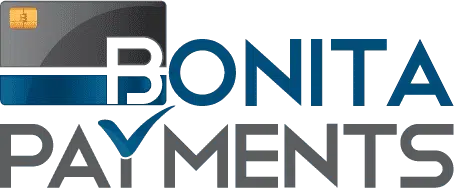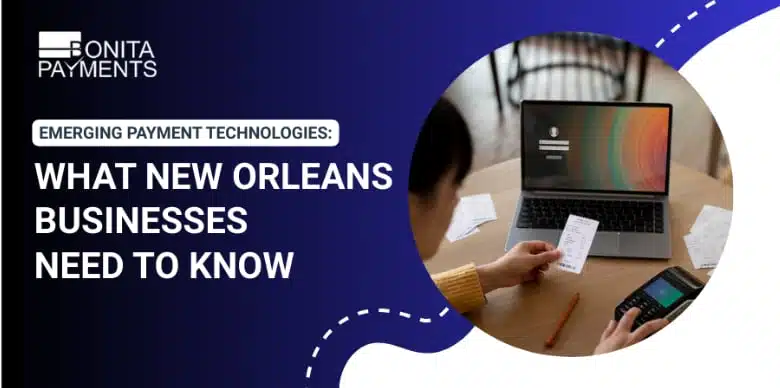As the vibrant city of New Orleans continues to evolve, so too do the economic conditions that shape its business landscape. Local businesses, particularly small and medium-sized enterprises (SMBs), often find themselves navigating unique challenges influenced by various economic factors. Understanding the trends in this fast-faced environment is crucial for businesses seeking to remain competitive and responsive to the market.
This year poses significant economic fluctuations that New Orleans businesses must monitor closely. Rising inflation rates, changing consumer behaviors, and shifting market dynamics present both challenges and opportunities for savvy entrepreneurs. By staying informed and adapting their strategies accordingly, businesses can thrive amidst these changes and enhance their operational efficiencies. Let’s explore the key economic trends affecting businesses in New Orleans, their implications for payment processing, and strategic recommendations to help local enterprises succeed in an ever-changing marketplace.
Current Economic Conditions Impacting New Orleans Businesses
New Orleans has witnessed a revival in recent years, with tourism playing a pivotal role in driving economic growth. With the easing of pandemic restrictions, businesses are experiencing a resurgence in foot traffic and consumer spending. However, several economic conditions have emerged that local business owners should be aware of:
- Rising Inflation: Inflation rates have surged recently, impacting the cost of goods and services. As businesses face higher operational costs, ranging from supplies to labor, pricing strategies must be reevaluated to maintain profitability.
- Labor Market Fluctuations: The labor market continues to be volatile, with many businesses struggling to find skilled labor. Competition for talent has led to increased wages and benefits, affecting operating budgets and financial planning.
- Changing Consumer Behavior: As more consumers embrace convenience and online shopping, their preferences have shifted dramatically. Businesses that adapt to these evolving customer needs are likely to succeed in the current economic climate.
- Supply Chain Disruptions: Ongoing supply chain issues continue to affect various industries, resulting in delays and increased costs. Businesses must develop contingency plans to manage inventory and meet consumer demand effectively.
Trend Analysis: Key Economic Trends
Inflation and Its Implications
One of the most pressing issues for New Orleans businesses is the impact of inflation. As the cost of raw materials, shipping, and labor rises, many businesses must assess their pricing strategies. While raising prices may seem like an immediate solution, it is essential to consider the potential effects on customer loyalty and purchasing power.
In order to navigate inflation successfully, businesses should:
- Evaluate Pricing Models: Implement dynamic pricing strategies that reflect changing costs while remaining competitive in the market.
- Focus on Cost Control: Review operational expenses to identify areas for cost savings without compromising quality.
Changes in Consumer Behavior
The pandemic has transformed consumer behavior in lasting ways. Many customers have adopted online shopping and expect businesses to provide seamless digital experiences. Those who embrace this shift are more likely to capture the attention of today’s consumers.
Some common consumer behavior changes include:
- Preference for Digital Payments: With the rise of e-commerce, contactless and mobile payment solutions are becoming increasingly popular. Businesses must ensure their payment systems can accommodate digital transactions for a smoother customer experience.
- Demand for Convenience: Convenience has become a priority for consumers. Businesses can enhance the customer experience by incorporating flexible payment solutions that allow for quick and easy checkouts.
Supply Chain Challenges
Supply chain disruptions have made it challenging for businesses to maintain inventory levels and manage operational costs effectively. Companies that can adapt to supply chain challenges are better positioned to meet consumer demand.
Key strategies include:
- Diversification of Suppliers: Establishing relationships with multiple suppliers can mitigate risks related to supply chain disruptions. This ensures businesses can pivot quickly if one supplier is unable to deliver.
- Implement Inventory Management Systems: Utilize technology to improve inventory tracking and streamline ordering processes, helping businesses respond more effectively to fluctuating demand.
Implications for Payment Processing
Adapting to Economic Changes
As businesses navigate the aforementioned economic trends, it’s essential to assess how these changes impact payment processing needs. Adopting innovative payment solutions can help businesses maintain cash flow, improve operational efficiency, and enhance customer experiences.
Key considerations include:
- Embracing Digital Payment Solutions: Integrating mobile payments, online payment gateways, and contactless solutions will ensure businesses can cater to customer preferences while simplifying transaction processes.
- Streamlined Payment Processing: Businesses should prioritize payment solutions that offer streamlined processing times, improved security, and the ability to handle a variety of payment methods. This can significantly enhance the checkout experience and facilitate better cash flow management.
Addressing Cost Concerns
As businesses consider implementing new payment technologies, concerns about costs, training, and implementation timelines often arise. However, organizations should recognize that an initial investment in innovative payment solutions can yield significant long-term benefits.
Reassurance Strategies:
- Analyze ROI: Before implementing a new payment system, businesses should conduct a cost-benefit analysis to determine the expected return on investment (ROI). Highlighting potential savings and increased revenues can help mitigate cost concerns.
- Training and Support: Choose payment providers that offer robust training and customer support. This ensures staff can quickly adapt to new processes and minimizes disruption to operations during the transition.
Advice for Businesses: Strategic Recommendations
To successfully navigate the current economic landscape, New Orleans businesses should consider the following strategic recommendations:
- Stay Informed: Regularly monitor economic indicators and trends to stay updated on factors impacting your industry. Attend local business conferences, and subscribe to newsletters or podcasts focused on economic developments.
- Agility is Key: Be prepared to pivot your business strategy based on changing conditions. An agile approach allows businesses to adapt to fluctuating consumer preferences, pricing pressures, and supply chain challenges efficiently.
- Leverage Technology: Invest in technology that can enhance operations, improve payment processing, and streamline customer experiences. Embrace solutions that facilitate digital transformations in payment processing and customer engagement.
- Engage with Your Community: Support local initiatives and stay connected with other businesses in your community. This collaboration can lead to shared resources, insights, and increased customer loyalty.
- Invest in Staff Training: Equip your employees with the skills they need to succeed in an evolving business environment. Ongoing training and support can improve morale, enhance the customer experience, and lead to better business outcomes.
Challenges Facing New Orleans Businesses in 2025 Without Updated Payment Solutions
As we go deeper into 2025, businesses in New Orleans must adapt to an ever-evolving economic landscape driven by technology, consumer expectations, and market dynamics. Those that fail to modernize their payment solutions risk facing substantial challenges that could hinder their growth, efficiency, and overall customer satisfaction. Here are some key challenges local businesses may encounter if they do not update their payment solutions:
1. Increased Consumer Expectations
Today’s consumers expect seamless, fast, and convenient payment experiences. If New Orleans businesses continue to rely on outdated payment systems, they may struggle to meet these expectations. Shoppers are increasingly favoring businesses that offer contactless payments, mobile wallets, and diverse payment options. Delays at checkout due to slow or clunky systems can lead to customer frustration, abandonment of purchases, and ultimately a decrease in sales.
2. Lack of Competitive Edge
As more businesses adopt modern payment technologies, those that do not risk losing their competitive advantage. In a vibrant city like New Orleans, where local businesses compete with both each other and larger chains, the ability to efficiently process payments can set a company apart. Businesses that fail to innovate may find themselves falling behind competitors who provide a more streamlined customer experience.
3. Security Vulnerabilities
Older payment systems often lack the robust security features necessary to protect sensitive customer data. As cyber threats become increasingly sophisticated, businesses using outdated systems can face significant risks, including data breaches and fraud. A security incident not only damages a company’s reputation but can also lead to costly fines and expenses associated with remediation and legal actions, ultimately impacting the bottom line.
4. Operational Inefficiencies
Businesses that do not update their payment systems may experience operational inefficiencies that can hinder growth. Outdated technology often requires more time and personnel resources to manage transactions, resulting in slower service and increased labor costs. Additionally, these inefficiencies can lead to poor inventory management, inaccurate financial reporting, and limited insights into sales trends, which further complicates strategic decision-making.
5. Inability to Leverage Data Analytics
Modern payment solutions often come equipped with valuable data analytics capabilities that allow businesses to track customer behavior, sales trends, and inventory levels in real time. If businesses continue to rely on outdated systems, they risk losing out on these insights, which are crucial for making informed and strategic decisions. Without this data, businesses may struggle to tailor marketing efforts, optimize inventory, and enhance customer engagement.
6. Challenges with Customer Retention
Customer loyalty will be influenced significantly by the quality of the purchasing experience. If businesses do not offer flexible payment solutions and secure checkout processes, they may fail to build lasting relationships with customers. In a city like New Orleans, where community and relationships are vital, businesses that neglect to provide modern payment options may find it difficult to retain customers who value convenience and security.
7. Regulatory Compliance Issues
As payment technologies advance, so too do regulations surrounding payment processing and data protection. Businesses that use outdated systems may inadvertently violate compliance requirements, risking fines and legal complications. Keeping up with regulations—such as PCI Compliance for credit card processing—requires modern systems that can adapt to new standards. Failure to do so can expose businesses to significant legal and financial repercussions.
8. Limited Growth Opportunities
Without modern payment solutions, businesses may find it challenging to scale operations. Whether branching into new markets, expanding online capabilities, or integrating new payment methods, outdated systems can act as a bottleneck. This limitation can hinder growth initiatives and prevent businesses from capitalizing on new trends, such as eCommerce or subscription services.
Empower Your Business with Bonita POS Solutions in 2025
Unleash your business’s full potential with our comprehensive Bonita POS system. Designed for all sizes, our all-in-one solutions help you streamline operations, boost customer satisfaction, and increase revenue—whether you’re running a cozy local shop or a bustling eCommerce platform.
- Efficiency Meets Security: Experience lightning-fast transactions on our high-definition displays, with customizable order management. Access your business dashboard from anywhere, all while keeping your data safe with advanced multi-layered security.
- Ultimate Mobility: Take charge of your business wherever you go! Our fully mobile POS solution lets you process secure payments anytime, anywhere, ensuring you never miss a sale.
- Fast Funds, Happy Customers: Enjoy rapid deposits that place your earnings in your hands within hours—not days. Additionally, enhance customer loyalty with our innovative Perka™ loyalty solution, making it easy for you to reward your loyal patrons.
Conclusion
For New Orleans businesses, the decision to update payment solutions is critical. As we move deeper into 2025, the failure to modernize these systems can lead to significant challenges, from increased consumer dissatisfaction and decreased competitiveness to heightened security risks and operational inefficiencies. As the business landscape continues to evolve, investing in robust, innovative payment solutions will not only facilitate smoother transactions but also empower local entrepreneurs to thrive and better serve the vibrant New Orleans community.
By embracing modern payment technologies, businesses can ensure they are equipped to meet the demands of today’s consumers, enhance operational efficiency, and create a solid foundation for future growth.Incorporating innovative payment solutions can significantly enhance customer experiences and streamline operations, allowing businesses in New Orleans to respond effectively to the changing landscape. Transform the way you do business today—choose Bonita Payments and elevate your payment experience! Contact us today.





